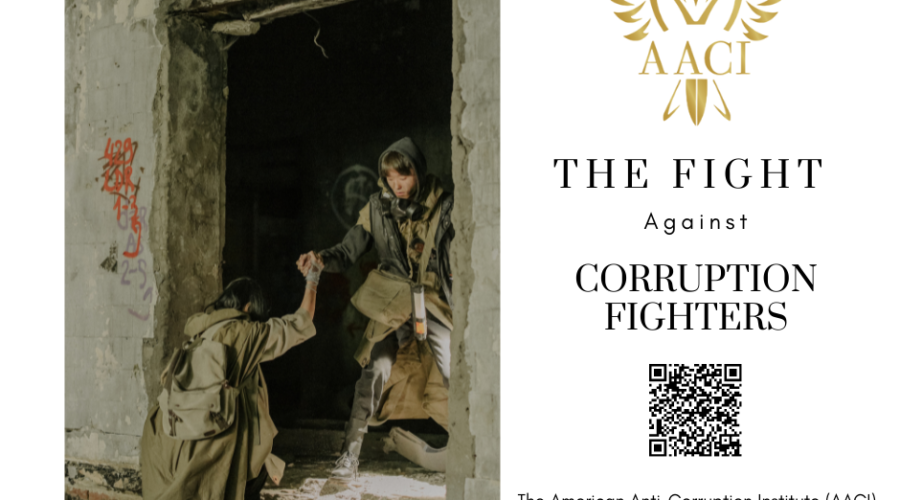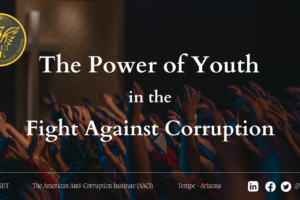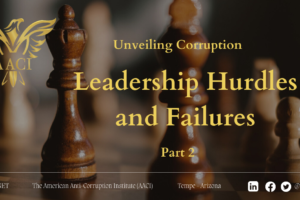Mike J. Masoud
January 30, 2022
Corruption is an international problem, and the fight against it requires global efforts. Corruption fighters are in every corner of the world, working to eradicate corruption from their respective countries. But the corrupt, protected by their corrupt network, fight back fiercely, viciously, and cowardly.
Who Should Protect the Corruption Fighters?
Not only must the government protect them, but it must also encourage them to expose corruption using all available and legal measures. Whistleblowers, as a top-tier class of anti-corruption fighters, should be encouraged and protected to uncover corruption at its early stages. As a result, the government is responsible and accountable for involving all stakeholders in the fight against corruption without fear of retaliation from the corrupt. But what if the government is unable to do so?
When States Collapse
When corruption pervades society, it fundamentally alters its essential values and reshapes its culture. As time passes, corruption becomes the norm. I witnessed it in several nations and read about it in numerous countries throughout the globe. When corruption levels reach dangerously high levels, the rule of law erodes, the judiciary loses its credibility and public trust, and politicians openly sell their influence to the highest bidder. The corrupt are willing to betray their family, society, and country because they lack honor. As a result, under no circumstances should people trust the corrupt. People, particularly in underdeveloped countries, should remember that the corrupt lack free choice and are always willing to betray their countries.
What to Do?
People have two options: abandon their countries for the corrupt to continue their nefarious activities and sink them, as Lebanon has done, or rise and protect their countries. Corrupt states are doomed to fail. A failing state is a no-state: it isn’t a civil state! Citizens should say no to corruption in all of its legal forms, mediums, and methods. Corruption fighters are committed to the rule of law, human rights (as described in the Universal Declaration of Human Rights), honesty, an effective and independent judiciary, and the Ten Principles of Fighting Corruption Promulgated by The American Anti-Corruption Institute (AACI).

Though brutal and harmful, unscrupulous revenge has its limits. Under international law, however, the fight against corruption has no bounds.











































